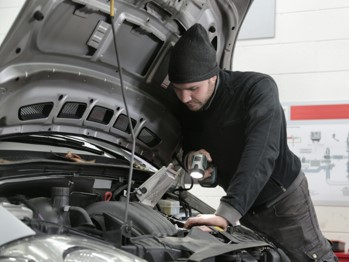

For motorists in the United Kingdom, regular car servicing is not just a recommendation, it’s a necessity. The unique driving conditions, weather patterns, and road types in the UK mean that vehicles often face various challenges that can impact their performance and longevity. In this blog post, we’ll explore the importance of regular car servicing and maintenance, highlighting the specific needs of vehicles in the UK and the benefits of keeping your car in top condition.
Why Regular Car Servicing Matters
Regular car servicing is essential for several reasons. Firstly, it ensures that your vehicle remains safe to drive. During a service, mechanics check critical components such as brakes, tyres, and suspension systems to ensure they function correctly. This can help prevent accidents caused by mechanical failures.
Secondly, regular servicing can save you money in the long run. By identifying and addressing potential issues early, you can avoid costly repairs down the line. For example, a minor oil leak detected during a service can be fixed before it causes significant engine damage.
Thirdly, regular servicing helps maintain your vehicle’s performance and fuel efficiency. Over time, components such as spark plugs, air filters, and fuel injectors can become dirty or worn, reducing your car’s efficiency. Servicing ensures these parts are cleaned or replaced, keeping your vehicle running smoothly and economically.
The Specific Needs of UK Vehicles
Vehicles in the United Kingdom can face unique challenges that make regular servicing particularly important. The UK’s variable weather conditions, including rain, snow, and ice, can take a toll on your car. Wet and icy roads can lead to increased wear on tyres and brakes, while cold temperatures can affect battery performance and fluid levels.
Additionally, the UK’s road network includes a mix of motorways, urban streets, and rural roads, each presenting different challenges. Motorways require vehicles to maintain high speeds for extended periods, which can strain engines and tyres. Urban driving involves frequent stopping and starting, which can wear out brakes and clutches. Whereas rural roads, often narrow and winding, can lead to increased wear on suspension systems and tyres.
Benefits of Regular Car Servicing
What to Expect During a Car Service
A typical car service includes a range of checks and maintenance tasks. These may vary depending on the type of service (e.g., interim, full, or major) and the specific needs of your vehicle. Common servicing tasks often include: